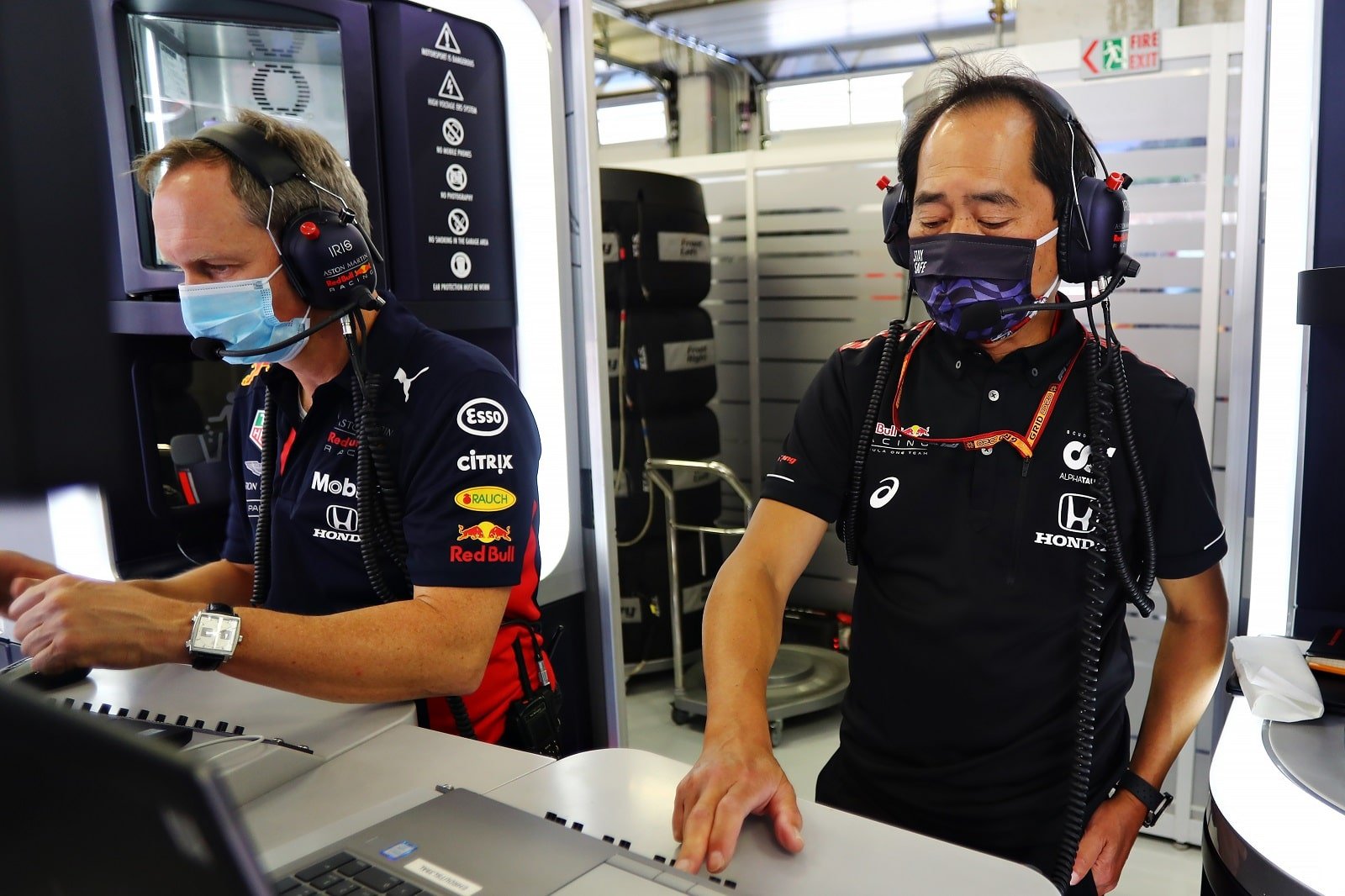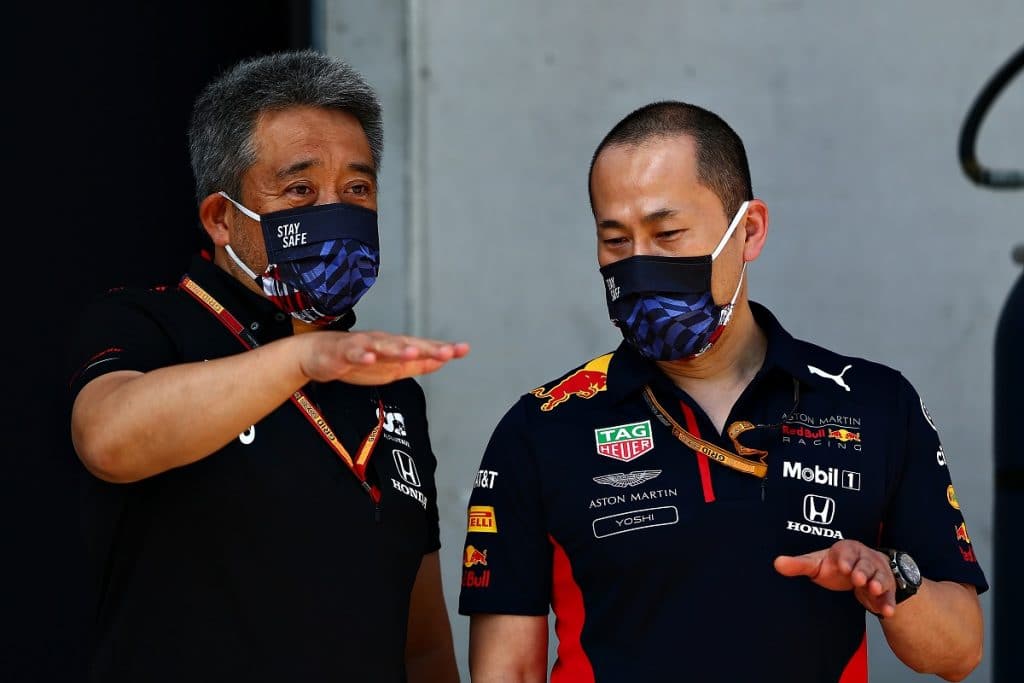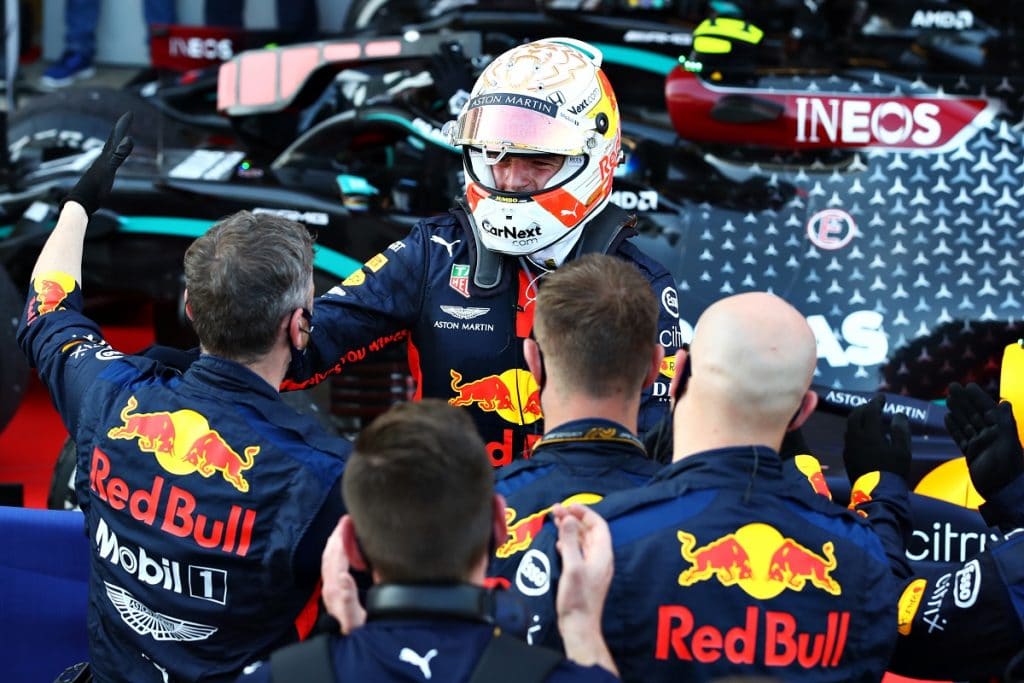
OPINION: What Honda’s decision to pull out really means
Honda’s decision to leave Formula 1 caught most of the paddock off-guard, citing the car makers decision to focus on zero-emissions technology and the rising costs behind pulling the plug on the project after next season.
This is an unhelpful development for F1, as it now means that for the start of the new regulations in 2022, the series will only have three major manufacturers in Mercedes, Ferrari and Renault.
Despite having title-winning success with Williams and McLaren between 1986-1991, Honda has had a bumpy history with the so-called pinnacle of motorsport.
After pulling out in the wake of the 2008 financial crash, the team which was Honda won both teams and drivers titles in 2009 in Brawn GP in what would have been a painful experience. Now just as the Honda power unit seems competitive, they have had enough of F1 after what will be six expensive years with no or little reward for them.
At the news conference on Friday, Honda’s chief executive Takahiro Hachigo said: “In F1, Honda achieved a certain level of success by attaining our goal to claim victories. And now, we will funnel our strengths into achieving innovations in the new field of creating carbon-free power units and energy and realizing carbon neutrality.”

The customer Honda teams, Red Bull and Alpha Tauri, who have both won races this season will now have to find a new engine partner beyond next year.
Both teams have committed to F1 beyond 2021, but in a formula where engine performance is key, Red Bull will have an uncomfortable truth to confront.
After being openly critical of their former supplier Renault, Red Bull left in exchange of Honda, but with Mercedes nor Ferrari likely to offer a unit to the Austrian company, a return to Renault is the most likely outcome.
For F1, this announcement could not have come at a worse time as Liberty Media wants to project the sport as one where manufacturers can thrive, but by leaving at this point, Honda have shown that F1 is not as relevant a test-bed as it once was and where manufacturers lose millions if not billions of pounds every year.
All the time while Honda try to find answers for their F1 project means they are spending less time on trying to developing electric vehicles in the race to develop new, innovative and creative solutions for the next generation of the automotive industry.
Mr Hachigo added: “Today’s announcement is also about expressing Honda’s determination to take on a new challenge of realizing carbon neutrality. Together with stakeholders of Honda, we will continue our all-our effort and strive for the realization of carbon neutrality.
“Ever since our founding, Honda has been advancing its technologies, developing its engineers and nurturing its strong passion for victory through challenges we have taken in motorsports.”

So could this see Honda race in Formula E?
It is unlikely at this stage, but with goals to be a world-leader in electric technology, it could be a way of competing while also developing greater electrification beyond 2021. Other motorsport series could be considered, but this move has to be considered in the context of them signing a long-term IndyCar contract.
But as F1 heads into a new era in 2022, the new cost caps, structure for decision-making and new technical and sporting regulations were designed with the intention of lowering costs and increasing competition.
As new president of Formula E Stefano Domenicali takes his place in January, the role of the Italian will be to restore confidence in the sport as this latest announcement is a worrying sign with just three manufacturers left in F1 which raises the question of how relevant it is in the automotive world?



![Private: [ID: 71rYi-xncgM] Youtube Automatic](https://motorradio-xijqc.projectbeta.co.uk/wp-content/uploads/2024/08/private-id-71ryi-xncgm-youtube-a-1-360x203.jpg)
![Private: [ID: 1SfHxvC8Doo] Youtube Automatic](https://motorradio-xijqc.projectbeta.co.uk/wp-content/uploads/2024/07/private-id-1sfhxvc8doo-youtube-a-1.jpg)
![Private: [ID: H6XRkf6kROQ] Youtube Automatic](https://motorradio-xijqc.projectbeta.co.uk/wp-content/uploads/2024/07/private-id-h6xrkf6kroq-youtube-a-1-360x203.jpg)
![Private: [ID: Kb6w-qAmKls] Youtube Automatic](https://motorradio-xijqc.projectbeta.co.uk/wp-content/uploads/2023/12/private-id-kb6w-qamkls-youtube-a-360x203.jpg)
![Private: [ID: CcpwYw20k3k] Youtube Automatic](https://motorradio-xijqc.projectbeta.co.uk/wp-content/uploads/2024/07/private-id-ccpwyw20k3k-youtube-a-360x203.jpg)

![[ID: x1SiRC5jhW4] Youtube Automatic](https://motorradio-xijqc.projectbeta.co.uk/wp-content/uploads/2022/04/id-x1sirc5jhw4-youtube-automatic-360x203.jpg)
![[ID: lMZ8lAeLubk] Youtube Automatic](https://motorradio-xijqc.projectbeta.co.uk/wp-content/uploads/2022/04/id-lmz8laelubk-youtube-automatic-360x203.jpg)
![[ID: GAYCcnqyFo4] Youtube Automatic](https://motorradio-xijqc.projectbeta.co.uk/wp-content/uploads/2022/04/id-gayccnqyfo4-youtube-automatic-360x203.jpg)
![[ID: Gg142H296QY] Youtube Automatic](https://motorradio-xijqc.projectbeta.co.uk/wp-content/uploads/2022/04/id-gg142h296qy-youtube-automatic-360x203.jpg)





